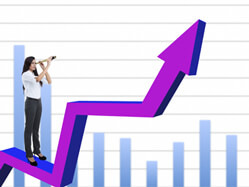What is a Fixed Deposit (FD)?
A fixed deposit (FD) is a simple way to save money. You can invest your money in an FD account for a fixed tenure. In return, they give you interest on that money.
- You choose how long you want to keep the money—6 months, 1 year, 5 years, or more.
- You get your full money back with interest at the end of maturity.
Some people choose to receive interest every month or every 3 months.
Why FDs Are Considered a Safe Investment Option?
Here are a few reasons why people think FDs are safe:
- Your money is safe: You get back the full amount you put in.
- No market risk: FDs are not affected by market ups and downs.
- Fixed interest: The interest rate doesn’t change.
- Easy process: Opening and managing an FD is very simple.
- Insurance cover: Your bank FD is insured up to ₹5 lakh (including both principal and interest) per depositor, per bank, by the DICGC.
Assessing FD Security
Even if we say that a fixed deposit is safe, here are a few things you should always check:
- Choose the right bank: Pick a reliable bank or company.
- Check the rating: If it’s a company FD, make sure it has a good credit rating.
Who Should Invest in an FD?
FDs are for everyone. But here’s who they help the most:
- Senior citizens get a little more interest than others.
- Investors who are averse to risk.
- If you're saving for a trip or a wedding etc.
- FDs can be a way to start saving money.
Risks Associated With FDs
While many believe that a fixed deposit is safe, here are a few risks to know:
- Inflation: While fixed deposits are considered safe investments due to their assured returns, they carry the risk of inflation eroding the real value of those returns. Inflation means that prices of goods and services rise over time, reducing the purchasing power of money.
For example, if you earn a fixed interest rate of 6% on your FD, but the inflation rate is 5%, your real return—the actual increase in purchasing power—is only about 1%. This means that although your money grows nominally, the amount you can buy with that money increases very little.
- Premature withdrawal of your FD : If you prematurely withdraw your FD , you may lose some interest.
A FD investment provides a steady return on your money while safeguarding your funds and remains user-friendly in its operations. So, is FD safe or not? Yes, it can be for many people. But it’s always better to learn a bit and plan smartly.
If you're planning to invest in a fixed deposit, an FD calculator can be a useful tool. It lets you quickly estimate how much interest you can earn and the total amount you can receive at maturity. This helps you plan better by choosing the right investment amount and tenure based on your financial goals.
FAQs
Is it safe to keep money in a fixed deposit?
Your money is safe in a fixed deposit. Banks are controlled by the RBI, and up to ₹5 lakh in each bank is insured by DICGC. This means even if a bank shuts down, you can get your money back, up to this limit. This means that even if a bank fails, your money—up ₹5 lakh—is protected and will be returned to you.
- Is FD safer than mutual funds?
Yes, fixed deposits are considered a safe investment. They offer assured returns, so you know in advance how much you'll earn by the end of the term. This predictability makes FDs a popular choice for those who prefer low-risk, stable investment options.
Are FDs a suitable option for senior citizens?
Yes, fixed deposits are a reliable investment choice for senior citizens. They provide a steady income, are simple to manage, and many banks offer higher interest rates to seniors.
Can a fixed deposit be withdrawn before maturity?
Yes, if you need money in emergency, you can break your FD. But you may get a lower interest rate or have to pay a small penalty, depending on the bank’s terms and conditions.
Is it safe to invest all your savings in fixed deposits?
While fixed deposits are a safe investment, it’s preferable to diversify your investments across different avenues. Relying on just one option limits your financial flexibility and growth potential.
Can inflation reduce your FD returns?
Inflation can lower the real value of your FD returns. For example, a 6% interest rate on an FD becomes less effective if inflation reaches 7%.
Is it wise to invest beyond fixed deposits for added security?
You may receive better safety when you consider investing it in diversified portfolios like life insurance, PPF and savings plans. The arrangement ensures that any poor performance in one investment will not affect other investment choices. The process of diversifying your money prevents reliance on a single asset, which strengthens both your savings and their security.





























 An ISO 9001:2015
An ISO 9001:2015 

